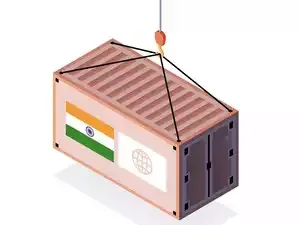Related
- India needs to carefully navigate US sanctions on certain firms to safeguard business interests: GTRI
- Trump's 'America First' agenda may lead to higher tariffs on Indian auto, textiles, pharma: Experts
India's decision to opt out of the trade bloc RCEP was strategically sound as the country has the largest trade deficit and trust issues with China, think tank GTRI said on Friday. India's trade deficit with China stood at over USD 85 billion in FY2024.
"Had India joined RCEP, the situation could have worsened drastically, as it would face zero-tariff imports from China, risking further imbalance," the Global Trade Research Initiative (GTRI) said.
In 2019, India announced that it would not join the China-backed mega free trade agreement -- Regional Comprehensive Economic Partnership (RCEP) as negotiations failed to address New Delhi's outstanding issues and concerns.
"India's decision to opt out of the RCEP was strategically sound, as subsequent developments have validated its concerns over potential economic imbalances, which increasingly favours China over other member nations," GTRI founder Ajay Srivastava said.
The remarks assume significance as Niti Aayog CEO BVR Subrahmanyam has recently stated that India should be a part of the Regional Comprehensive Economic Partnership and Comprehensive and Progressive Agreement for Trans-Pacific Partnership.
It added that a major worry for India has been the rising trade deficits of RCEP members with China.
"This trend, rather than showing signs of improvement, has worsened post-RCEP. ASEAN's trade deficit with China grew sharply from USD 81.7 billion in 2020 to USD 135.6 billion in 2023," GTRI said.
Japan's deficit doubled, and for the first time, South Korea is projected to experience a trade deficit with China this year, it added.
This indicates that RCEP's gains are disproportionately skewed toward China, leading to unfair competition and validating India's fears that joining would lead to a surge in Chinese imports without corresponding benefits, it said.
India already has robust free trade agreements (FTAs) with 13 out of 15 RCEP members, excluding New Zealand and China.
Consequently, the expected benefits from RCEP would have been marginal for India, particularly considering China's opaque trade practices and its history of flooding markets with subsidised goods, Srivastava said.
"I have not seen solid arguments for how joining RCEP would benefit India. Most arguments do not go beyond the idea that opening up the economy is good. But why open to a country with which we have the largest trade deficit and trust issues," he added.
US Election 2024
US Election Result Live Updates
Swing state results deciding who'll be new POTUS
Trump vs Harris: Who’s winning which state? Full list
In 2019, India announced that it would not join the China-backed mega free trade agreement -- Regional Comprehensive Economic Partnership (RCEP) as negotiations failed to address New Delhi's outstanding issues and concerns.
"India's decision to opt out of the RCEP was strategically sound, as subsequent developments have validated its concerns over potential economic imbalances, which increasingly favours China over other member nations," GTRI founder Ajay Srivastava said.
The remarks assume significance as Niti Aayog CEO BVR Subrahmanyam has recently stated that India should be a part of the Regional Comprehensive Economic Partnership and Comprehensive and Progressive Agreement for Trans-Pacific Partnership.
It added that a major worry for India has been the rising trade deficits of RCEP members with China.
"This trend, rather than showing signs of improvement, has worsened post-RCEP. ASEAN's trade deficit with China grew sharply from USD 81.7 billion in 2020 to USD 135.6 billion in 2023," GTRI said.
Japan's deficit doubled, and for the first time, South Korea is projected to experience a trade deficit with China this year, it added.
This indicates that RCEP's gains are disproportionately skewed toward China, leading to unfair competition and validating India's fears that joining would lead to a surge in Chinese imports without corresponding benefits, it said.
India already has robust free trade agreements (FTAs) with 13 out of 15 RCEP members, excluding New Zealand and China.
Consequently, the expected benefits from RCEP would have been marginal for India, particularly considering China's opaque trade practices and its history of flooding markets with subsidised goods, Srivastava said.
"I have not seen solid arguments for how joining RCEP would benefit India. Most arguments do not go beyond the idea that opening up the economy is good. But why open to a country with which we have the largest trade deficit and trust issues," he added.
Nominations for ET MSME Awards are now open. The last day to apply is November 30, 2024. Click here to submit your entry for any one or more of the 22 categories and stand a chance to win a prestigious award.








